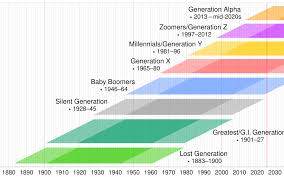The Defining Years of Generation Z

Introduction: The Significance of Gen Z
Generation Z, commonly referred to as Gen Z, includes individuals born from the mid-to-late 1990s through the early 2010s. This demographic cohort is increasingly influential, shaping cultural, social, and economic landscapes worldwide. Understanding their formative years is crucial not only for marketers and educators but also for policymakers, as this generation’s views and behaviours will significantly affect the future.
Main Body: Key Characteristics and Events
Gen Z is characterized by their digital nativity. Unlike previous generations, they grew up in a world dominated by the internet, smartphones, and social media. This access to technology has influenced their communication styles, learning habits, and values. A recent study revealed that 95% of Gen Z members own a smartphone, with social media serving as a primary source of information and community.
Significant events that have marked the years of Gen Z include the global financial crisis, the rise of social media platforms, and various movements advocating for social justice, including climate change activism. The impact of the COVID-19 pandemic cannot be overstated; many Gen Zers faced disruptions in their education and employment, which in turn has shaped their outlook on job security and mental health.
Moreover, research shows that this generation is particularly conscious of mental health issues, with 90% of Gen Z reporting that mental health is a critical factor for them. This collective awareness is driving conversations about well-being, representation, and inclusivity in various fields, including workplace environments and educational institutions.
Conclusion: The Future of Gen Z
As Generation Z continues to gain prominence in society, their years of participation in digital communication, activism, and diverse cultural interactions will undoubtedly influence future trends. Analysts predict that Gen Z will drive change in various sectors, favouring brands and organisations that demonstrate authenticity and social responsibility. Additionally, their focus on mental health is poised to bring about new initiatives aimed at supporting well-being, further highlighting their impact beyond the years they were raised in. Understanding and engaging with Gen Z is essential for anyone seeking to connect with today’s youth and the emerging future they are poised to shape.









